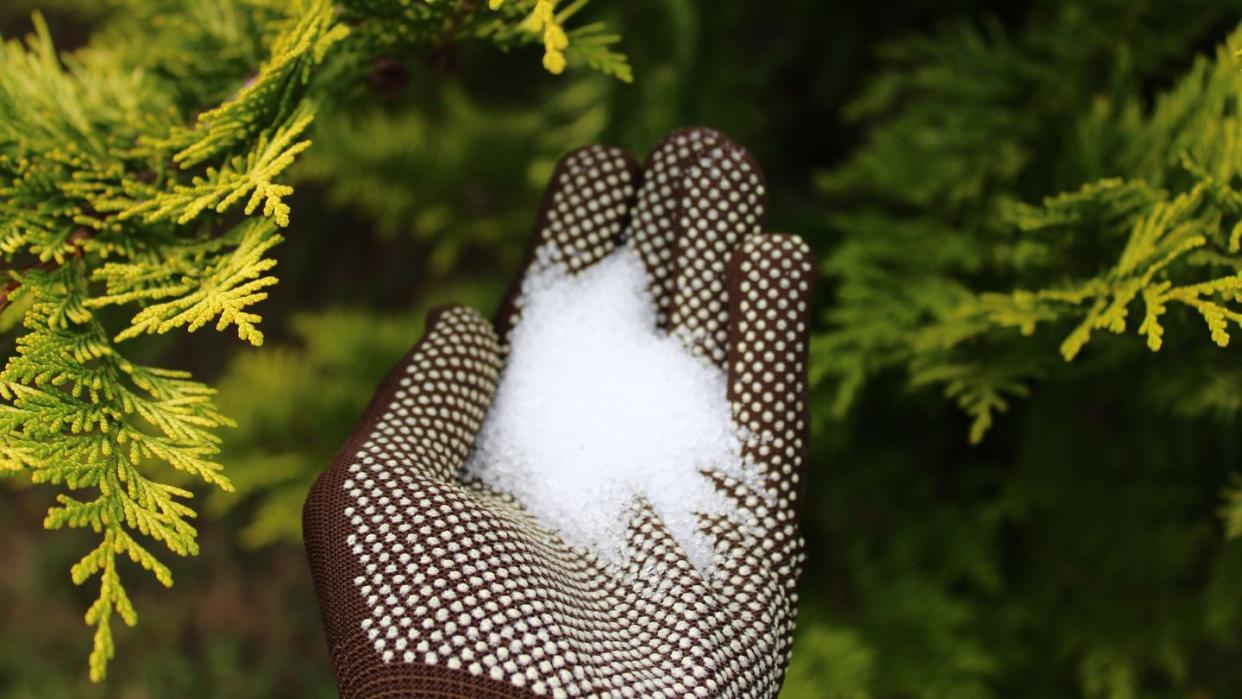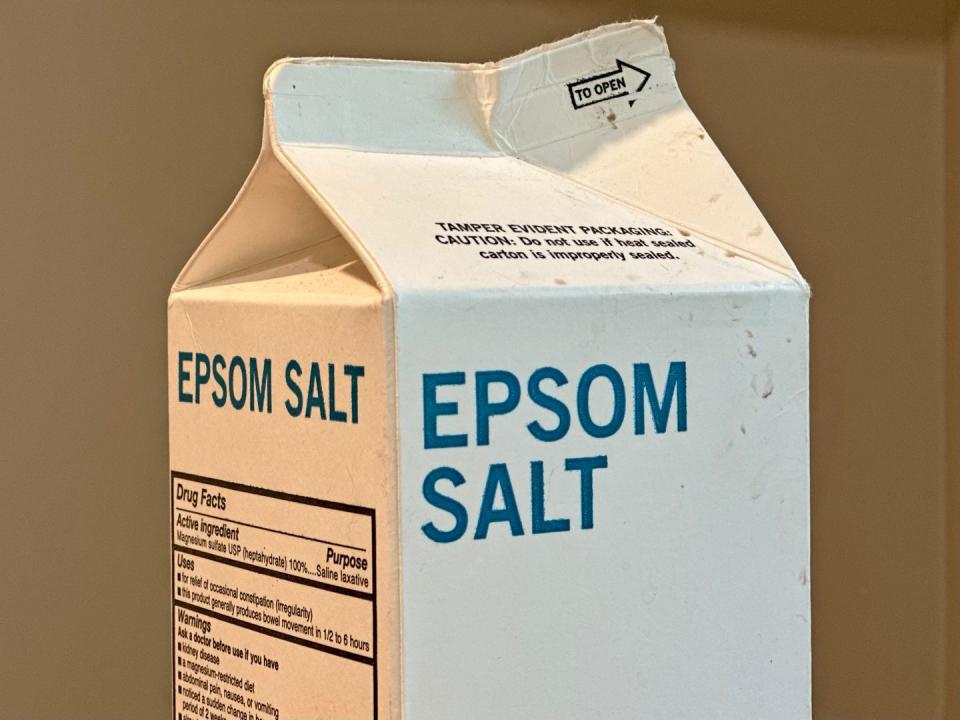Should You Use Epsom Salt in Your Garden?

[table-of-contents] stripped
You’ve probably heard that Epsom salt is a great “natural” soil amendment for your garden.
For generation, gardeners have claimed that it’s beneficial, especially for tomatoes, peppers, and roses. It’s been reported to do everything from keeping slugs away to increasing your harvest.
Plus, it's natural, which means it must be good for your garden. Right?
The truth is a little less spectacular. “Most of the supposed benefits of Epsom salt for home gardens are not based on science,” says Linda Chalker-Scott, PhD, professor and extension urban horticulturist at Washington State University. “The claims come from anecdotal accounts, not research.”
Even if your grandma (sorry, Grandma!) or neighbor swears by using Epsom salts, or magnesium sulfate, it’s not recommended for most home gardens. That’s because a plant that isn’t deficient in magnesium will not suddenly perform more robustly if you add Epsom salt to the soil, says Chalker-Scott.
Read on to learn why Epsom salts aren’t the miracle garden cure you’ve heard about:

What Is Epsom Salt?
Epsom salt is a naturally occurring mineral, which dissolves easily in water. It’s named after Epsom, England, where water that’s high in this mineral is used in the region’s historic spas.
The use of this chemical (and yes, it is a chemical, even though it’s naturally-occurring!) dates back to the '30s and '40s when agricultural researchers discovered “leaf blotch” in commercial orchards, a condition which caused the leaves to turn yellow, red or purple then die and drop off.
The issue was traced to magnesium deficiency. Growers learned that by applying magnesium sulfate to soil and leaves and injecting it into branches, a quick greening up would occur, temporarily “solving” the problem, says Chalker-Scott.
Unfortunately, there wasn’t consistent success with this technique. Many studies contradicted each other concerning its effectiveness. Most importantly, even though growers used the chemical frequently, it did nothing to alleviate the nutrient imbalances in the soil, says Chalker-Scott.
Should I Use Epsom Salt in My Garden?
Probably not. “Soils in home gardens and landscapes are rarely deficient in magnesium,” says Chalker-Scott. “The only way to tell for sure if your soil is lacking something is to get a soil test.” (We recommend getting a soil test before adding any kind of fertilizer.)
Related: Everything You Need to Know about Using Organic Fertilizer
The same goes for using Epsom salt on your lawn. “Lawns will rarely be low in micronutrients such as magnesium. This is a non-issue for most homeowners,” says Clint Waltz, PhD, turfgrass specialist and researcher at the University of Georgia. “You’d need a soil test anyhow to know if you’re missing a specific nutrient before you start putting anything down.”
That’s because adding chemicals to your garden or lawn when they’re not needed is wasteful— and potentially harmful to plants.
In fact, research has found that overuse of magnesium sulfate can cause salt injury to plants and lead to deficiencies of other essential plant nutrients such as boron, iron, and potassium.
Essentially, you’ll be doing more harm than good if you apply Epsom salts without knowing what’s already in your garden soil.
Is Epsom Salt Good for Plants?
Unless your garden is low in magnesium, as determined by a soil test, Epsom salts are not beneficial to plants or your garden in general, says Chalker-Scott.
Other unproven gardening claims for Epsom salt:
It helps seeds germinate: Nope! Seeds only need water and oxygen to germinate.
It makes plants grow bushier and produce more flowers: There’s zero evidence plants treated with Epsom salt have more leaves or flowers.
It prevents blossom end rot. This condition is caused by cultural practices, such as uneven watering, which leads to calcium deficiency; adding more magnesium actually may further inhibit calcium uptake by the plant, worsening the problem.
It deters pests such as slugs: There’s also zero science behind this claim; plus, Epsom salt is not registered as a pesticide so it’s illegal to use it as such.
It reduces the amount of fertilizer needed: Because Epsom salt contain no nitrogen, potassium, phosphorous or other essential nutrients, it won’t reduce the amount of fertilizer you need!
Bottom line: Don’t bother to sprinkle or spray Epsom salts on your plants. Instead, save it for a relaxing soak in the bathtub after a long day of gardening!
You Might Also Like


